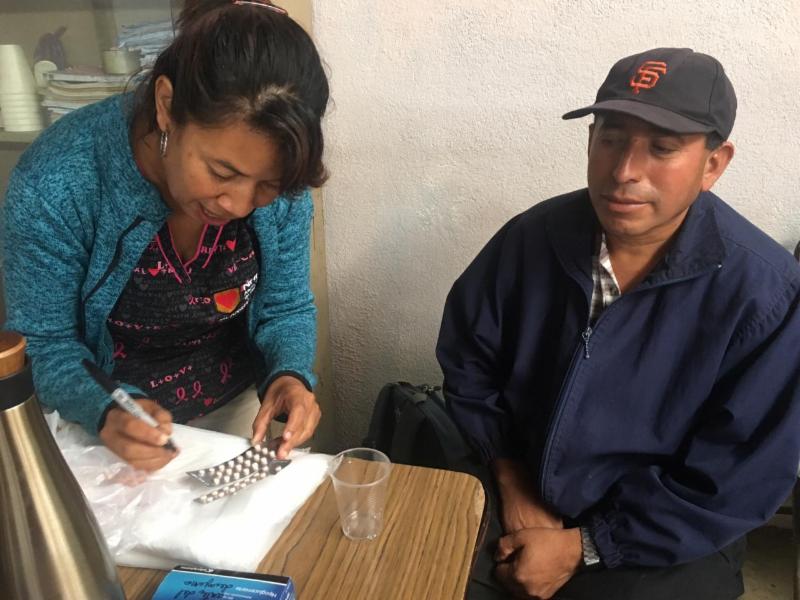|
Nursing Heart Friends,
In Guatemala Diabetes and Ischemic heart disease are amongst the highest causes of premature deaths, according to the WHO.
A study by the university of Pennsylvania School of Medicine found that more than 25 percent of Gautemala’s indigenous people, who make up 60 percent of the population, suffer from Type 2 diabetes or pre-diabetes.
As you can see, both of these conditions, which sometimes go hand in hand, are prevalent here and at Nursing Heart Inc, we are trying to help reduce this prevalence. Monthly in Santa María de Jesús, we hold a Diabetes and Hypertensive club.
Each patient receives a medical consult, health education and all medications free of charge, provided by the organization. Our goal is to facilitate and provide care to the poorest of Guatemalans. Without this club, these patients would not otherwise have the financial means to seek regular medical check ups and almost all, cannot afford the cost of medication.
We currently have 40 patients enrolled and we proudly graduate patients who are managing to keep healthy Blood Sugar Levels and Blood Pressure readings.
If further tests or treatment are required, we provide financial support for the patients as well.
If you would like to donate monthly to support or diabetes program or make a one-off donation please mention “Diabetes Club” on payment.
Best,
Jade Parker-Manderson xx
Executive Director NHI/ACE

|